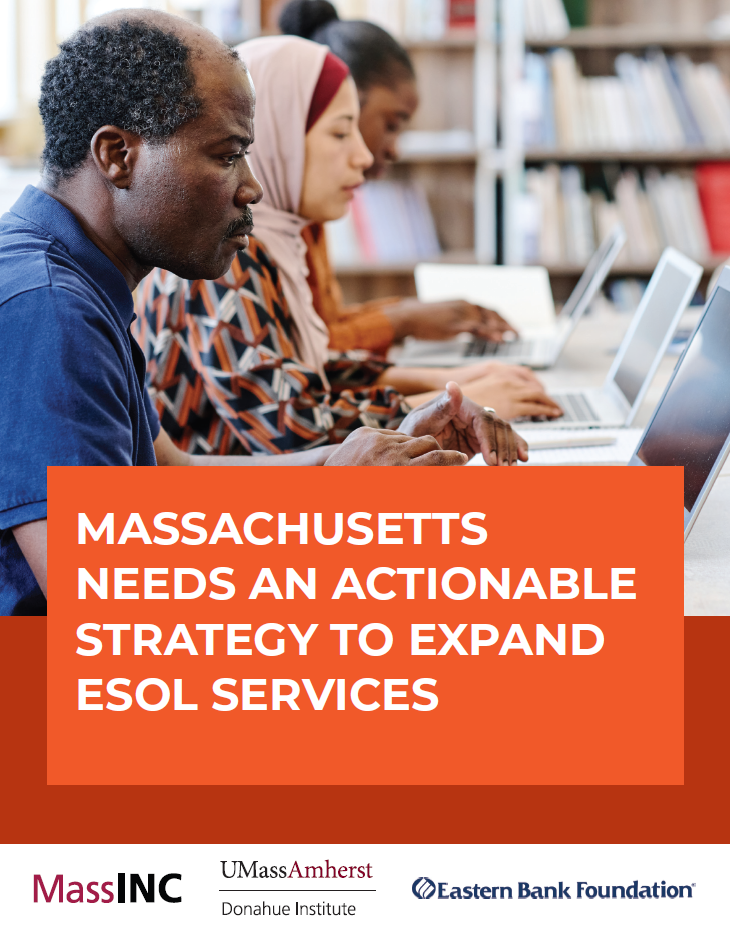Adults with limited English skills comprise one-tenth of the commonwealth’s workforce. This makes English for Speakers of Other Language (ESOL) services key to the Massachusetts economy. While the field is innovating to increase access and improve the delivery of these services, state and federal funding has declined considerably over the past two decades, relative to the growing need. Produced in partnership with the UMass Donahue Institute, this study catalogs the potential benefits of increasing public investment in ESOL and offers guidance on how Massachusetts can develop an actionable strategy to make high-quality ESOL services broadly available to residents throughout the commonwealth.
Key Takeaways
- State and federal funding for ESOL services isn’t keeping pace in MA.
- There are just 5.4 vocational ESOL opportunities per 1,000 work-age LEP adults in MA, a third of the state’s capacity to provide ESOL instruction.
- Increasing English proficiency among working-age LEP adults in MA would generate $3 billion in additional annual earnings.
